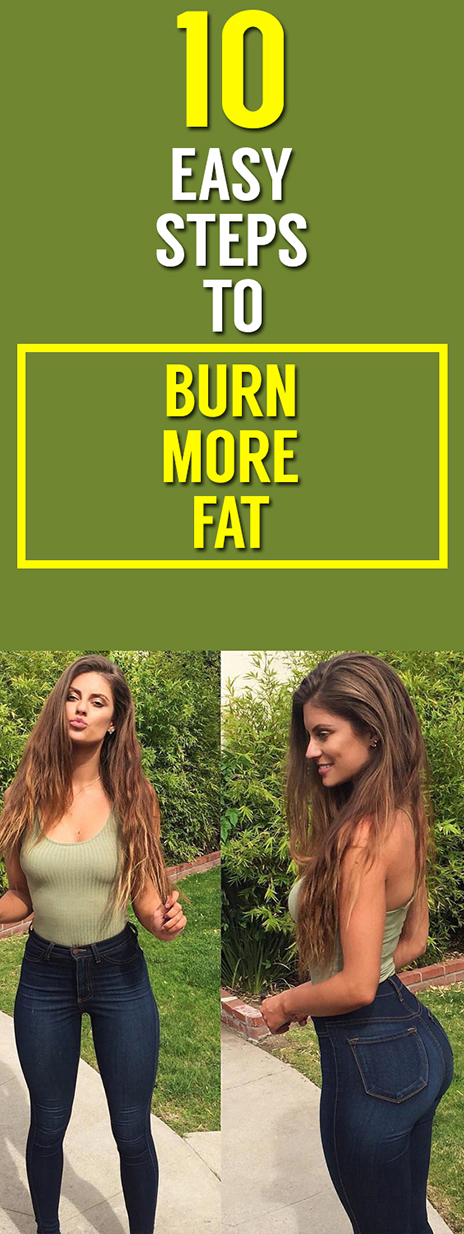
Do you ever feel like you’ve been working out and pushing your body as hard as you can but still not seeing any results? You still look the same in the mirror despite all the hard work you’ve done; or you’re seeing changes, but they’re just small and insignificant. If any of this sounds like what is happening to you, it simply means that your workouts are not as efficient as they could be, and they’re not giving you the optimum results.
Then, the question will be, how to make our work out to be more efficient and obtain the maximized result? Well, here’s the thing you need to know first. Hitting the gym isn’t the only thing you should put your eyes on for a leaner body and losing fat, but when and how you consume your meals are too. Check out these rules curated by nutritionist expert on how to have meal in the right way to maximize your work out performance.
1. Empty stomach for running
You do need some energy for running or any cardio activities, yet this kind of workout is better to be done before you fuel yourself, particularly soon after you wake up in the morning when your stomach is empty. People is waking up in the calorie deficit state naturally and doing cardio in this state will increase your fat burning ability. Your body doesn’t have any other energy sources in this state, so it will burn your fat to have the energy you need for running, as mentioned by Seth Santoro, a holistic health coach.
2. Pre-workout meal for weight training
Different from cardio workout, weight workout needs pre-workout meal and it’ll be wise to not skip them as you’ll need more energy for this kind of workout. You can source your energy either from protein or carbs. Leah Kaufman, MS, RD, CDN suggests carbs, while Santoro prefers protein. However, either one you choose, just be sure it’s the easily absorbed kind of protein and carbs, like banana or whey isolate.
3. Big NO to sport drinks
Unless you work out in a hot temperature surrounding for at least an hour with continuously elevated heart rate, your body won’t need that extra fuel. Sport drinks contain more calorie than you think it is and it could pile more calorie than the one you just burn.
4. Post-workout meal is a must
Santoro assumed that pre and post workout meal are the most important meals of the day. Post-workout meal is important to replenish glycogen levels, decrease protein breakdown, increase protein synthesis and the ability to build muscle. Your body is at its optimum state to utilize protein after a weight workout and that’s why you need a proper post-workout meal.
5. Don’t overestimate the calorie you burn and underestimate the calorie you eat
No, it’s not strange to feel hungry after a workout, and it’s completely okay to listen to your body calls for food. However, don’t eat mindlessly thinking that you’ve burnt a certain amount of calories during your workout. Truth is, some of those calories will be burnt as well without you doing the workout. These calories will be burnt for the so-called basal metabolic function, to keep your heart beating and other organs functioning as it should be. Based on this, you should increase your calorie intakes only up to 20-30% of what is showed on your calorie tracker as suggested by Lisa Jubilee, MS, CDN.
Now that the rules have been laid open, let’s see some mistakes that perhaps have been done unconsciously. They might seem a small mistakes, but could have a big impact on your fat loss journey.
1. Wrong fuel, inefficient workout
Yes you might have had a pre-workout meal before workout, but what kind of food do you eat? Know that not all healthy foods are good to boost your workout performance. Healthy fats like avocado or nuts are not to be eaten before workout, because they are slow to digest and can burden your body during workout as it needs to work for digesting at the same time with the workout. To be worse, this can even trigger muscle cramps in the end of workout. Another things is lacking of carbs. While too much carbs is certainly not good for fat loss, but if you avoid carbs at all, your body won’t have enough energy to go through an intense workout and your performance will not be optimum.
2. Too much protein
We’ve seen that protein is great for post-workout meal as it helps build muscle and so on. However, this is only applied when it’s consumed in a right portion. The rule of ‘more is better’ does not apply here, because too much protein will in the end be stored as fat in your body and we wouldn’t want it for sure.
3. Being loyal is not suitable for workout
Settling with one kind of workout is not the best choice you could make. Either it’s cardio or weight training, if you settle just for one, you’ll find yourself inside a kind of comfort zone, where your body lacks of challenge and lack of intensity. Your body adapts and what once a challenge to your body can be something easy the more you do it. That will result in less calorie being burnt and even slower progress. That’s why you need to vary your exercise so that your body will keep being challenged with different intensity and duration. Don’t forget to always combine cardio with high intensity training, because too much cardio will encourage your body to store foods as fat on the purpose to reserve energy for that endurance training.
4. Faulty recovery
Recovery and rest is as important as the workout itself, for without proper rest, your body will release cortisol – a stress hormone – and increase your appetite. That would be the last thing you want to happen on your progress. On the other side, recovery session doesn’t only mean stopping from all exercise for a day after a day of workout. You can have recovery by alternating your workout with something lighter after an intense workout, so your body can relax and recover without being completely breaking your workout routine.
5. Inconsistent routine
Working out once a week is still better than nothing at all. However, if losing fat is your goal, you got to do more than that. It’s the same with other things, you can’t expect great result without a strong commitment. Then, to achieve your dream body, you should be consistent both in your workout and also your meal input. As a starting point, you can begin with making a workout plan, scheduling an alternating cardio and weight training. Next step, stick to your plan and be consistent about it. Good luck and remember it’s not only about the result, but all the process are counted!





